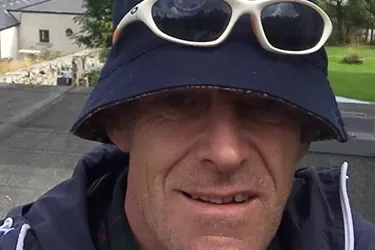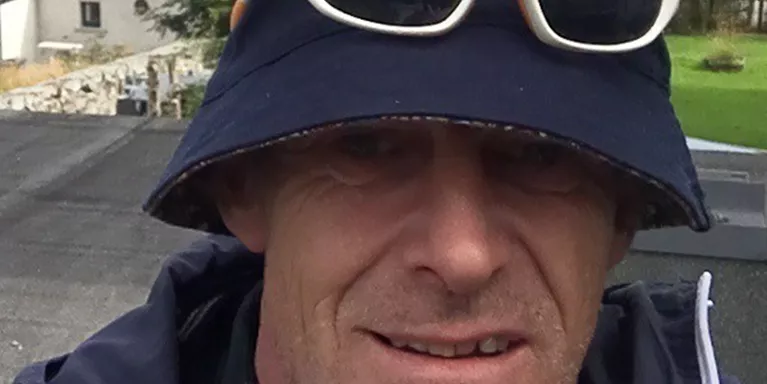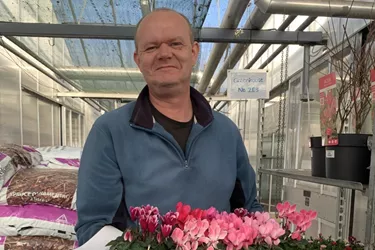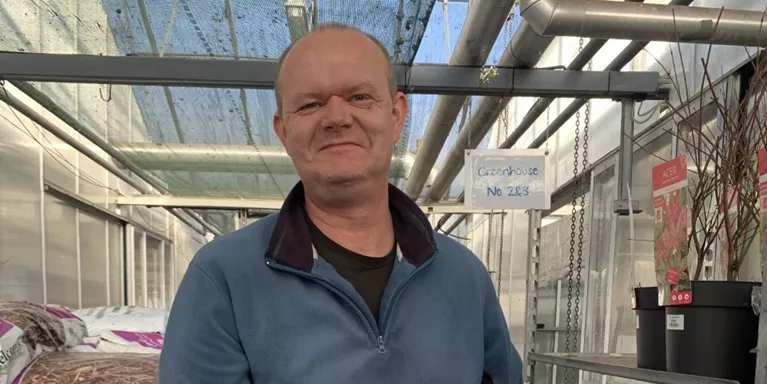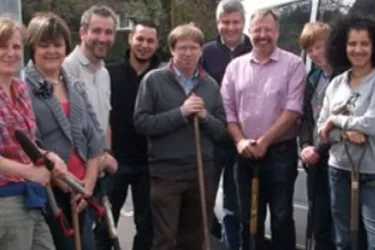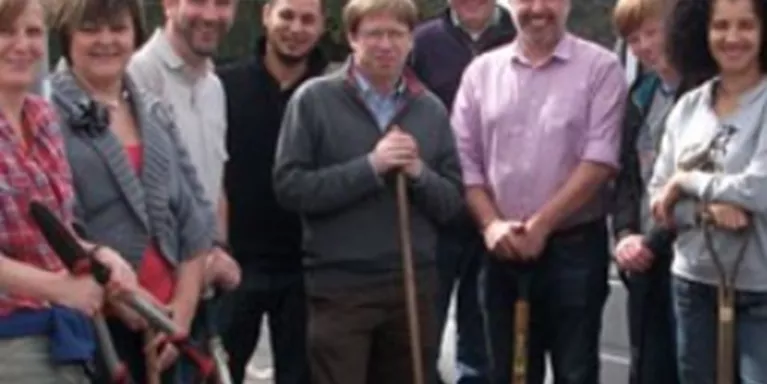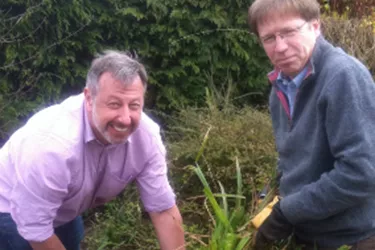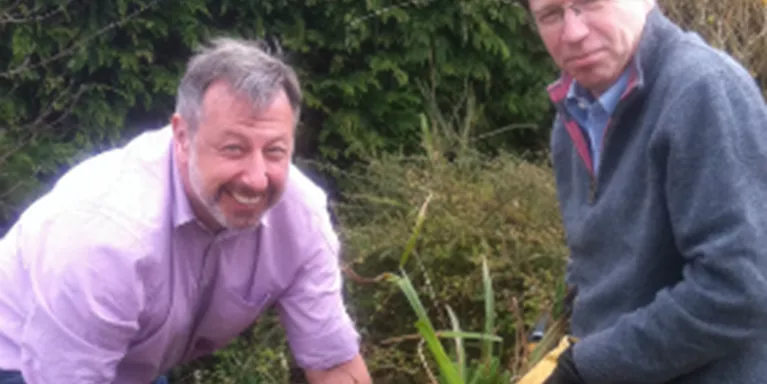Conservation helped my recovery
Glenn blogs about how volunteering on a nature project with Mind in Furness has given him a new confidence after bad episode of depression – and now he’s helping others.
My journey into mental health began on a personal level and has now become my vocation – supporting those people who have walked a similar path to my own and sharing the things that have made life worth living.
My life stuttered to a stop while working as an activities co-ordinator on an acute mental health unit. I returned to work too soon and this led me deeper into the depths of my depression.
"I was challenged by my therapist to find something to focus on, a hobby or wellbeing opportunity."
Adrift from work and undergoing psychotherapy I was challenged by my therapist to find something to focus on, a hobby or wellbeing opportunity. I left that session and headed to Waterstones. I’d taken up carving following an earlier episode of depression where Ray Mears and Bruce Parry accompanied me on my journey to recovery from my lounge. This time I found myself drawn to a book around another heritage craft, spoon carving, or as a friend called it, ‘a hobby for the apocalypse’.
In the three weeks I managed back at work for the NHS I had supported a young man on to a conservation day trip to Tarn Howes, The Lake District with Mind in Furness and the National Trust. During that day it felt as if it was not just beneficial for my client but this was a wellbeing opportunity for me.
Nature’s restorative qualities
There was a county council health and wellbeing coach on the trip who contacted me later about my growing interest in the restorative qualities of nature and the heritage crafts that had helped my recovery. Kev Bell would figure as a great support to myself and someone who would present me with my opportunity to attend Rusland Horizons, the wildlife trust between Coniston Water and Windermere in the Lake District.
Little did I know that my path was going to take me into the group leader role for Mind’s Conservation programme.
I was unable to recuperate in time to retain my job and had to accept that for now my career was over!
I ventured back to Mind In Furness to explore the potential for volunteering during my recovery. My feelings of worthlessness led me to forget that I had developed skills and that I had something to offer another struggling person with the personal experience I’d lived through. Mind in Furness welcomed me in and were pleased to support me back into the world of work.
"Getting back outdoors was pivotal in challenging my anxieties and low mood."
My first opportunity at Mind was to restart their gardening project following the retirement of the previous post holder. As a gentle reintroduction to support work this was an ideal opportunity for me to test just how much I had recovered. Getting back outdoors was pivotal in challenging my anxieties and low mood. I started the group in May 2018 with four service users and by the end of the year the gardening group had evolved into a kitchen garden project where group members would contribute their efforts then share all produce grown. By the end of our first season with two raised beds, all members of the group took something home to eat and had shared in the benefits of leaving the safety of their settee and front door behind. My five senses were activated.
As my confidence and self-esteem improved so too did the opportunities I was offered. Mind in Furness acknowledged my progress and were keen for me to do more now that I was more resilient. They invited me to restart their Conservation Project.
By this point in time I had had an invitation from Kev and Rusland Horizons to join their Full Cycle project which explored the life cycle of a Lakeland coppice and the connected heritage crafts that were practiced by these historical woodsmen.
Full Cycle supported those people who were re engaging in life following Mental health problems and a perfect antidote to the stress involved with everyday life.
Re-engaging in life
I have always felt comfortable within nature and less pressured. I certainly did not get this wellbeing feeling as easily in the town. My anxiety was minimised within that coppice. I returned there every month safe in the knowledge that the group leaders, Clare @thehorsebackadventurer Dyson and Gareth ‘@Woodmatters Jones were gentle in their approach and supportive throughout. Kev Bell was ever present to offer that professional support element if required.
As I remind my current conservation volunteers, the most difficult thing you will do on a conservation trip is make it to the minibus and get on it.
The monthly meetings moved through coppicing, camp cooking, greenwood crafts including spoon carving, stool and nesting box production, charcoal making and forging knives in the coppice using mini Himalayan forges. My confidence and self-esteem were returning with each passing month, as reconnecting with nature and my peers helped nurture my wellbeing.
"Now I have the pleasure of supporting others on their own paths to recovery"
I continue to walk my path to recovery and feel lucky to be able to share that with the members of Mind in Furness. Every month offers me the chance to top up on my wellbeing opportunities and to add to my knowledge around ecotherapy. Thank you to Mind In Furness for giving me the opportunity.
Back to the here and now I have great things to look forward to in the coming year, I have the pleasure of supporting others on their own paths to recovery with the National Trust, BOOM project where we reintroduce species locally to recover some biodiversity and hopefully an opportunity to work alongside Rusland Horizons once again on another Full Cycle project with myself graduating to group leader. My kitchen garden project continues to grow as does my passion for this vocation. What I’ve learnt is to keep going if you can. Things truly can improve.


Information and support
When you’re living with a mental health problem, or supporting someone who is, having access to the right information - about a condition, treatment options, or practical issues - is vital. Visit our information pages to find out more.
Share your story with others
Blogs and stories can show that people with mental health problems are cared about, understood and listened to. We can use it to challenge the status quo and change attitudes.










